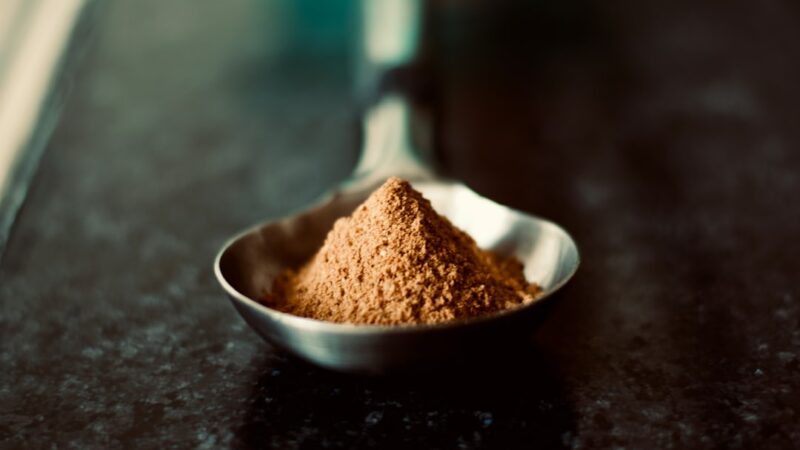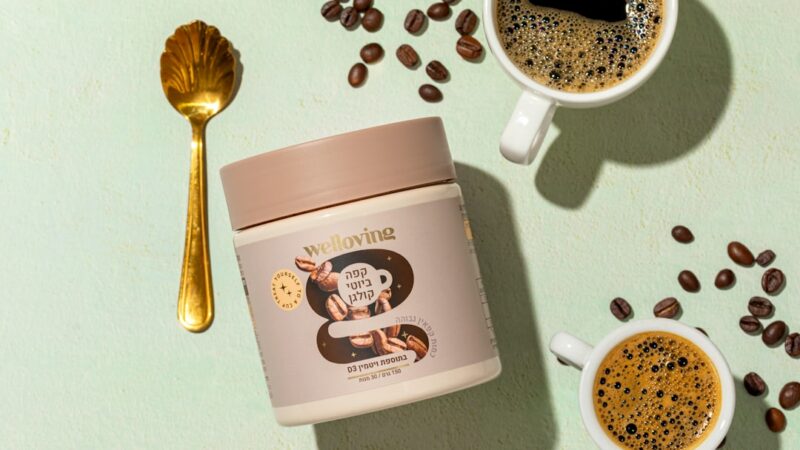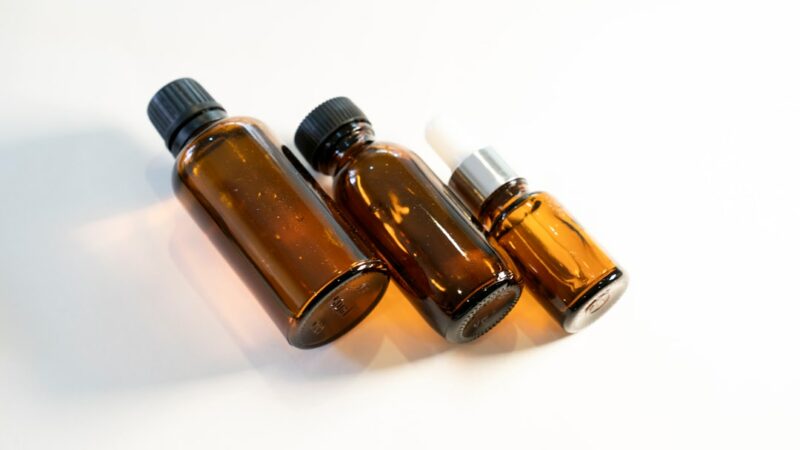“Collagen Protein: The Building Block of Youthful Skin and Strong Muscles”

Collagen protein is the most abundant protein in the human body, making up about 30% of our total protein content. It is a structural protein that provides strength and support to various tissues and organs, including the skin, muscles, bones, and tendons. Collagen is composed of amino acids, primarily glycine, proline, and hydroxyproline, which are essential for maintaining the structure and integrity of these tissues.
Collagen plays a crucial role in maintaining the health and function of our body. It provides structure to our skin, giving it elasticity and firmness. It also helps in wound healing and tissue repair. In addition, collagen is important for muscle development and strength, as well as joint health and mobility. As we age, our body’s ability to produce collagen naturally decreases, leading to various signs of aging such as wrinkles, sagging skin, and joint stiffness. Therefore, it is important to understand the importance of collagen for overall health and wellness.
Table of Contents
Key Takeaways
- Collagen is a protein that is essential for skin, muscle, and joint health.
- As we age, our body’s production of collagen decreases, leading to wrinkles, joint pain, and muscle weakness.
- Collagen supplements can help improve skin elasticity, muscle strength, and joint mobility.
- Different types of collagen have different functions in the body, such as Type I for skin and Type II for joint health.
- Eating foods like bone broth, fish, and citrus fruits can naturally boost collagen production.
Understanding the Importance of Collagen for Skin Health
Collagen is a key component of our skin and plays a vital role in maintaining its health and appearance. It provides structural support to the skin, giving it elasticity and firmness. As we age, the production of collagen in our body decreases, leading to the formation of wrinkles, fine lines, and sagging skin.
Collagen is responsible for maintaining the hydration levels of the skin. It helps to retain moisture in the skin cells, keeping it plump and hydrated. When collagen levels decrease, the skin becomes dry and loses its elasticity, leading to the formation of wrinkles.
In addition to its role in maintaining skin elasticity and hydration, collagen also helps in wound healing and tissue repair. It promotes the production of new skin cells and accelerates the healing process of wounds or injuries.
The Role of Collagen in Muscle Development and Strength
Collagen is not only important for skin health but also plays a crucial role in muscle development and strength. It is a major component of the connective tissues that surround and support our muscles. Collagen provides structural support to the muscles, allowing them to contract and generate force.
Collagen is essential for maintaining muscle mass. It helps to prevent muscle breakdown and promotes muscle growth. As we age, the production of collagen decreases, which can lead to muscle loss and decreased strength. Supplementing with collagen can help to maintain muscle mass and improve muscle strength.
Collagen also plays a role in the recovery and repair of muscles after exercise or injury. It helps to reduce inflammation and promote the healing process of damaged muscle tissues.
How Collagen Production Decreases with Age
Collagen production naturally decreases as we age. This is a result of various factors, including genetics, lifestyle choices, and environmental factors.
One of the main factors that contribute to decreased collagen production is the natural aging process. As we get older, the cells responsible for producing collagen become less active, leading to a decline in collagen synthesis. This decline in collagen production starts in our late 20s or early 30s and continues to decrease at a rate of about 1% per year.
Other factors that contribute to decreased collagen production include exposure to UV radiation from the sun, smoking, poor diet, and high levels of stress. These factors can accelerate the breakdown of collagen and inhibit its production.
The Benefits of Collagen Supplements for Skin and Muscle Health
Collagen supplements have gained popularity in recent years due to their potential benefits for skin and muscle health. These supplements are typically derived from animal sources such as bovine or marine collagen.
When taken orally, collagen supplements can improve skin health by increasing collagen levels in the body. They help to restore skin elasticity, reduce wrinkles, and improve overall skin texture. Studies have shown that collagen supplements can increase skin hydration and reduce the signs of aging.
In terms of muscle health, collagen supplements can help to maintain muscle mass and improve muscle strength. They provide the necessary amino acids for muscle growth and repair. Collagen supplements have been shown to increase muscle mass and improve physical performance in athletes and older adults.
The Different Types of Collagen and their Functions

There are several different types of collagen in the body, each with its own unique structure and function.
Type I collagen is the most abundant type of collagen in the body and is found in the skin, bones, tendons, and ligaments. It provides strength and support to these tissues, giving them their structural integrity.
Type II collagen is found in cartilage, which is the connective tissue that cushions our joints. It provides flexibility and shock absorption to the joints, allowing for smooth movement.
Type III collagen is found in the skin, blood vessels, and internal organs. It provides support and elasticity to these tissues.
Type IV collagen is found in the basement membrane, which is a thin layer of connective tissue that separates the epithelial cells from the underlying tissues. It provides structural support to the basement membrane and helps to maintain tissue integrity.
Foods that Boost Collagen Production Naturally
While collagen supplements can be beneficial for improving skin and muscle health, there are also several foods that can naturally boost collagen production in the body.
Foods that are rich in collagen include bone broth, chicken skin, fish skin, and pork skin. These foods contain high levels of collagen protein, which can be easily absorbed by the body.
In addition to consuming collagen-rich foods, there are also certain foods that promote collagen production in the body. These include foods that are high in vitamin C, such as citrus fruits, strawberries, bell peppers, and broccoli. Vitamin C is essential for collagen synthesis and helps to promote the production of collagen in the body.
Other foods that promote collagen production include foods that are high in antioxidants, such as berries, dark leafy greens, and nuts. Antioxidants help to protect collagen from damage and promote its production.
Collagen and Joint Health: How it Improves Mobility and Flexibility
Collagen plays a crucial role in joint health and can improve mobility and flexibility. It is a major component of the cartilage, which is the connective tissue that cushions our joints and allows for smooth movement.
As we age, the production of collagen in our joints decreases, leading to the breakdown of cartilage and the development of conditions such as osteoarthritis. Supplementing with collagen can help to maintain the health of our joints and reduce the risk of joint pain and stiffness.
Collagen supplements have been shown to improve joint mobility and reduce pain in individuals with osteoarthritis. They help to increase collagen levels in the joints, promoting the repair and regeneration of cartilage.
The Science behind Collagen’s Anti-Aging Properties
Collagen has been widely studied for its anti-aging properties. It has been shown to slow down the aging process and reduce the signs of aging such as wrinkles, fine lines, and sagging skin.
One of the main reasons why collagen is effective in reducing the signs of aging is its ability to increase skin hydration. Collagen helps to retain moisture in the skin cells, keeping it plump and hydrated. This helps to reduce the appearance of wrinkles and fine lines.
Collagen also stimulates the production of other proteins such as elastin and fibrillin, which are important for maintaining skin elasticity. These proteins help to keep the skin firm and prevent sagging.
In addition, collagen has antioxidant properties that help to protect the skin from damage caused by free radicals. Free radicals are unstable molecules that can cause oxidative stress and accelerate the aging process. Collagen helps to neutralize these free radicals and prevent damage to the skin.
Tips for Incorporating Collagen into Your Daily Routine
There are several ways to incorporate collagen into your daily routine to reap its benefits for overall health and wellness.
One of the easiest ways to consume collagen is through supplements. Collagen supplements are available in various forms, including powders, capsules, and liquids. They can be easily added to your favorite beverages or recipes.
Another way to increase collagen intake is by consuming collagen-rich foods. This includes bone broth, chicken skin, fish skin, and pork skin. These foods can be incorporated into soups, stews, or stir-fries.
In addition to consuming collagen, it is also important to support collagen production in the body by eating a balanced diet that is rich in vitamins and minerals. This includes foods that are high in vitamin C, antioxidants, and amino acids.
When choosing collagen supplements, it is important to look for high-quality products that are sourced from reputable manufacturers. It is also recommended to consult with a healthcare professional before starting any new supplement regimen.
Collagen protein plays a crucial role in maintaining the health and function of our body. It is important for skin health, muscle development and strength, joint health, and overall well-being. As we age, our body’s ability to produce collagen naturally decreases, leading to various signs of aging and decreased muscle mass. However, collagen supplements can help to improve skin health, maintain muscle mass, and promote joint mobility. In addition to supplements, there are also several foods that can naturally boost collagen production in the body. By incorporating collagen into our daily routine, we can support our body’s natural processes and promote overall health and wellness.
If you’re interested in learning more about the benefits of collagen protein, you might also want to check out this informative article on TurnToBeHealthy.com titled “The Science Behind Collagen: How It Supports Joint Health and Reduces Wrinkles.” This article dives deeper into the role of collagen in promoting youthful skin and strong muscles, while also shedding light on its impact on joint health. To read more, click here.
FAQs
What is collagen protein?
Collagen protein is a type of protein that is found in the connective tissues of animals, including humans. It is the most abundant protein in the body and is responsible for providing structure and support to various tissues, including skin, bones, muscles, and tendons.
What are the benefits of collagen protein?
Collagen protein has several benefits, including improving skin health, promoting joint health, and supporting muscle growth. It can also help reduce inflammation and improve gut health.
How does collagen protein improve skin health?
Collagen protein helps improve skin health by increasing skin elasticity, reducing the appearance of wrinkles and fine lines, and promoting skin hydration. It also helps improve skin texture and tone.
How does collagen protein promote joint health?
Collagen protein helps promote joint health by providing the necessary building blocks for cartilage, which is the tissue that cushions joints. It can also help reduce joint pain and stiffness.
How does collagen protein support muscle growth?
Collagen protein supports muscle growth by providing the necessary amino acids for muscle protein synthesis. It also helps improve muscle strength and endurance.
What are some food sources of collagen protein?
Some food sources of collagen protein include bone broth, chicken, fish, and beef. Collagen supplements are also available in the form of powders, capsules, and drinks.
Are there any side effects of collagen protein?
Collagen protein is generally considered safe and does not have any significant side effects. However, some people may experience digestive issues, such as bloating or diarrhea, when taking collagen supplements. It is always recommended to consult with a healthcare professional before taking any new supplements.






